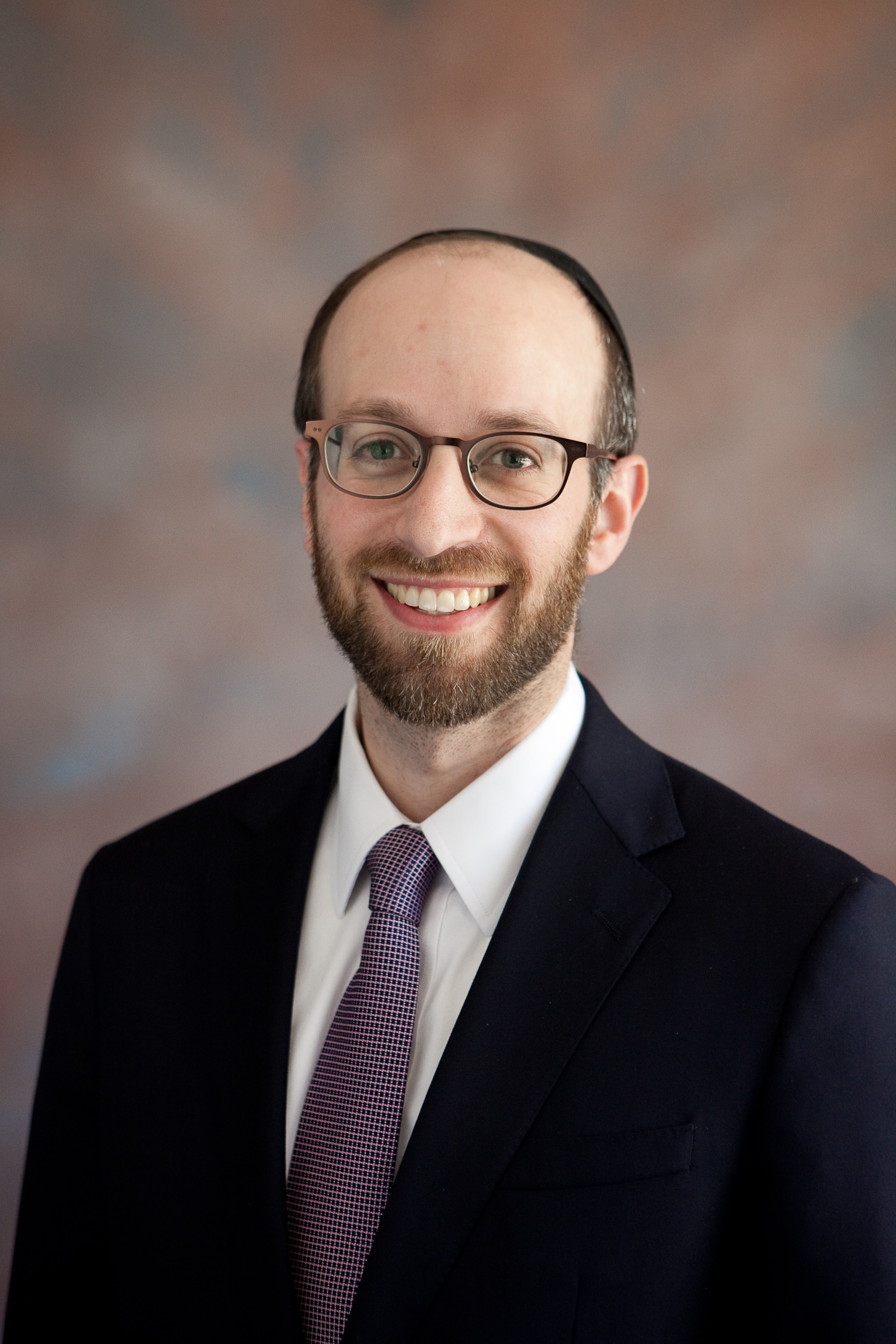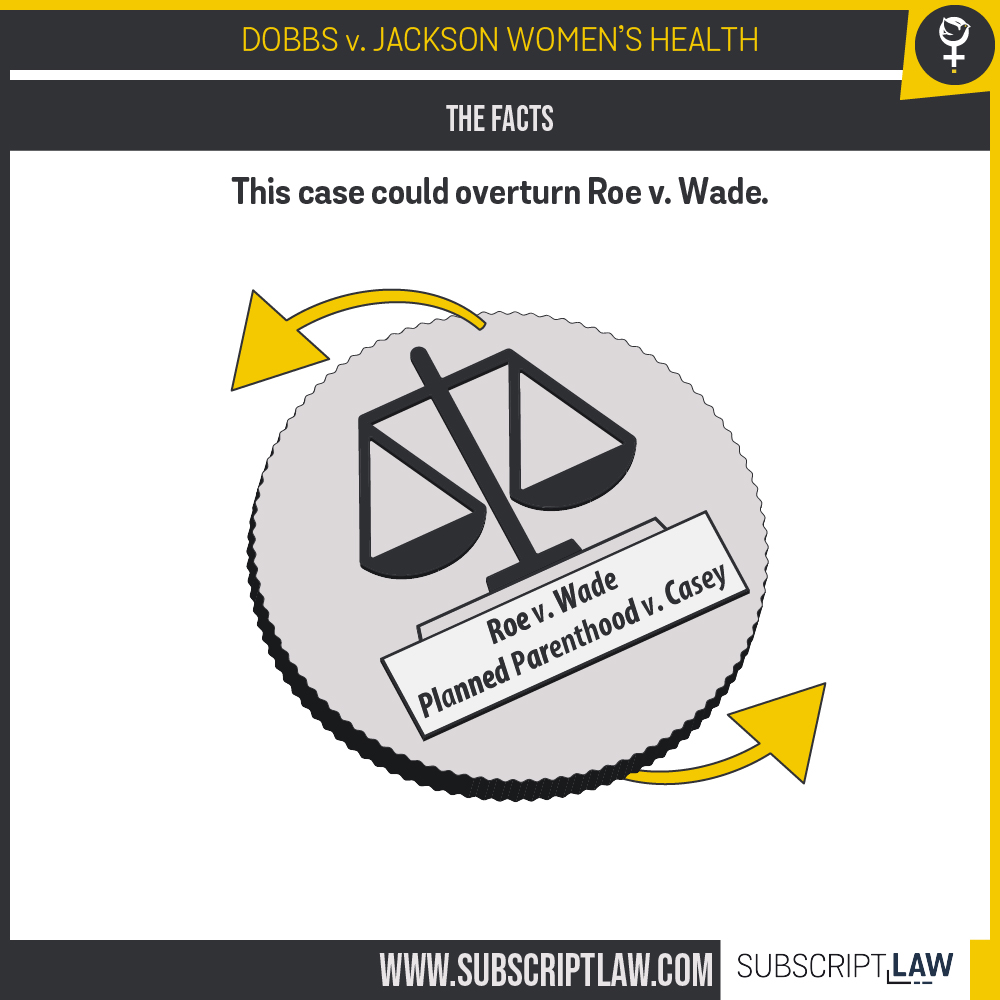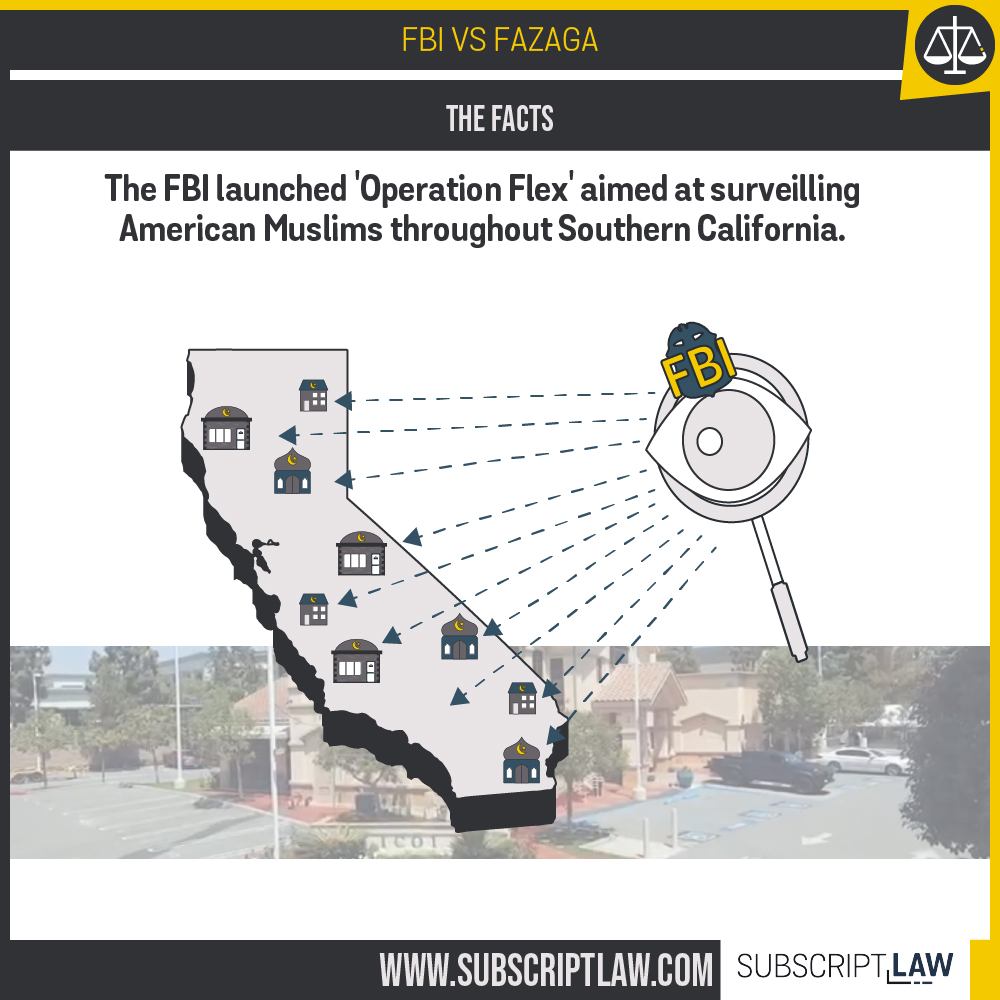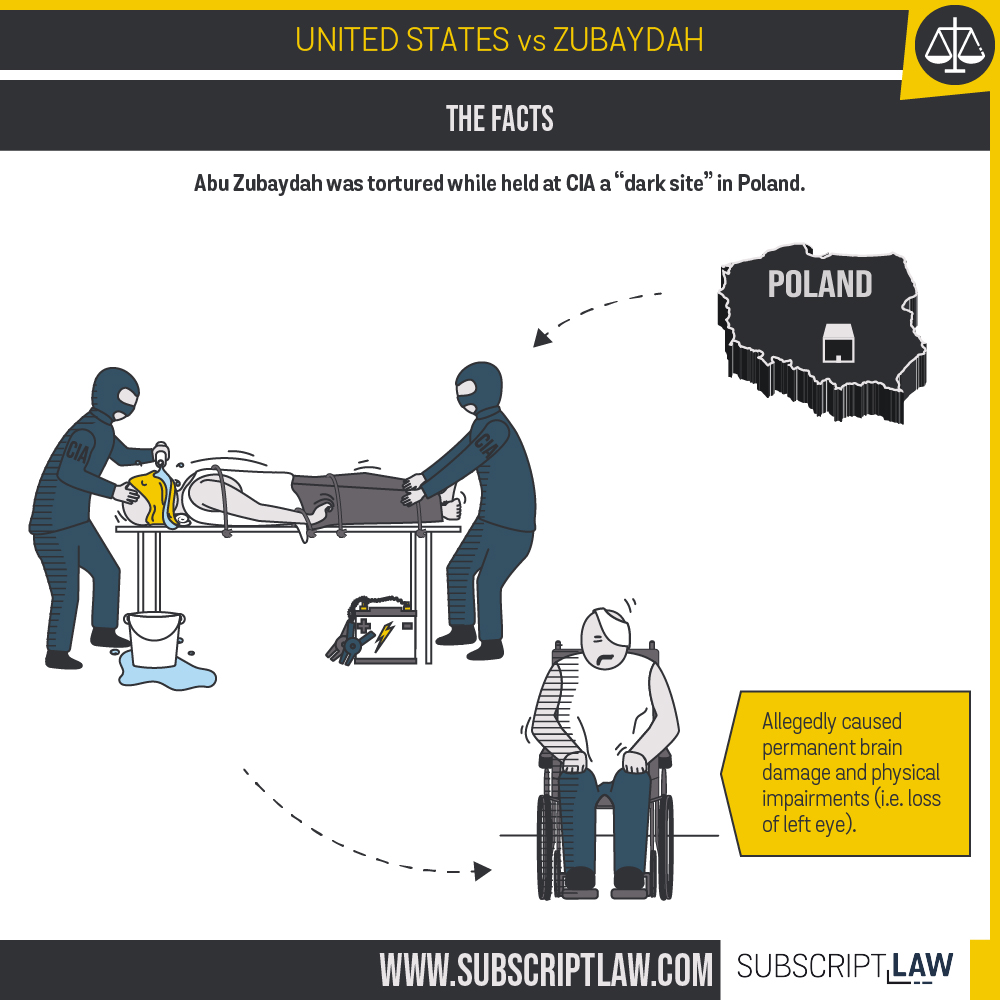What’s at stake in the copyright dispute between Google and Oracle?
In the United States Supreme Court
| Argument | October 7, 2020 |
| Decision | TBA |
| Petitioner Brief | |
| Respondent Brief | Oracle |
| Court below |  Federal Circuit Court of Appeals |
Google and Oracle will soon argue before the Supreme Court over the scope of copyright protection in an important area of software development. Oracle sued Google for its use of Java application programming interfaces (APIs) in the Android operating system. APIs are computer code that allow different software programs to communicate with each other.
After two separate appeals in the lower courts, Oracle stands on top with a ruling that Google infringed its copyrights in the Java platform. Google is asking the Supreme Court to overturn the infringement ruling.
Our last report on this case outlined the facts and arguments presented by Google and Oracle. Cases of national importance may affect a number of different parties and interests. The Supreme Court welcomes the views of interested parties in “amicus curiae” briefs, or from “friends of the court.” In this case, interested parties submitted over 50 briefs to the Supreme Court to provide their perspectives and arguments about the issues in this case. In this report we highlight a number of arguments presented in the amici briefs.
The US Government’s argument supporting Oracle
The U.S. Government may submit an amicus brief to inform the Court how the case may implicate its operation or responsibilities. Unlike most other amici, the U.S. Government does not have to ask permission to file an amicus brief. The U.S. Government may also ask the Supreme Court to allot time to speak as an amicus when the case is argued. The U.S. Government is involved in approximately two-thirds of all the cases the Supreme Court decides on the merits each year.
In this case, the U.S. Government filed a brief supporting Oracle’s position and was granted permission to present its view at oral arguments. The U.S. argues that computer programs are copyrightable despite their functional character. Furthermore, the U.S. said, the merger doctrine does not apply here because Oracle had “unlimited” expressive options when it designed Java.
Regarding fair use, the Government argues that copying to achieve interoperability can be fair use. However, Android was a commercial endeavor designed to be incompatible with Java. Google’s technical requirements did not mandate copying. In fact, other companies, including Apple and Microsoft, developed successful mobile operating systems without copying Oracle’s work.
Other amicus curiae arguments supporting Oracle
We conducted an survey of the briefs supporting Oracle and came across several arguments that were presented by a number of parties. We highlight those arguments here.
The “Choice in Expression” Argument
A number of Oracle supporters argue that Google’s functionality argument is invalid because Google didn’t have to copy the Java APIs to achieve their function. Google could have used a number of expressive choices. The Java APIs and their associated structure, sequence and organization were not dictated by the operational outcome they were intended to achieve. Google’s formulation of the merger doctrine suggests that computer programs protected by copyright lose that protection if those programs become the most popular and familiar way to express an idea. Furthermore, Google could have used code conversion apps to translate Java into its new Android language.
One amicus brief provided empirical evidence to show there are a large number of expressive choices available to any individual programmer, even when they are each coding a solution to an identical, known problem. There are also examples of successful mobile operating systems (e.g., iOS) that are not compatible with Java and did not reuse Java APIs.

See, e.g., briefs filed by: Interdisciplinary Team on Programmer Creativity; Professor Eugene H. Spafford, Ph.D., et al.; Alliance of US Startups and Inventors for Jobs; Industry Executives Joseph M. Tucci and Paul T. Dacier; Dolby Laboratories, Inc.; The Recording Industry Association of America et al.; Ten Creators’ Rights Organizations; News Media Alliance.
The “Reliance on Copyright” Argument
This argument says: the exception Google seeks (either for “interoperability” or for functionality” or due to “popularity” of the expression) is not only hard to implement but also bad for innovation.

Amici presenting this position argue that commercial entities would not innovate without being provided the copyright protection that Oracle is requesting in this case. These commercial entities would not undertake the expensive and time-consuming effort to produce software or other innovative work product without strong copyright protection. Congress considered, and declined, to carve out a subset of computer programs as uncopyrightable, recognizing that such line-drawing would difficult. The copyright statute requires that all computer software be treated just like any other literary work and analyzed under traditional copyright principles.
Java’s popularity is not a legitimate reason to excuse Google’s copying, and does not make Google’s use fair. Secondary use of a copied work that results in a marketplace replacement for the original is categorically impermissible because it undermines the incentive to create. Purposeful copying to avoid a business inconvenience is not a fair use and undermines the Constitutional goal of “promot[ing] the progress of science and the useful arts.” The relevant fair use should be how the copyrighted work is used, not where it is used.
Lowering the bar for copyright protection will make it harder to enforce copyright protection and harm US economic interests. US intellectual property-intensive industries generate nearly $7.7 trillion in gross output and account for more than 60% of total US exports.
Strong copyright protection is fundamental to a well-ordered legal system. The copyright exceptions Google advocates would place the United States in violation of its international agreements. The Court should apply copyright law as it stands and leave to Congress the task of deciding whether copyright law needs an upgrade.
See, e.g., briefs filed by: Professor Arthur Miller; Ralph Oman (former Register of Copyrights); Brief of Former Congressmen; Copyright Thought Leaders; Hudson Institute; Consumer’s Research; Copyright Alliance; Center for Medicine in the Public Interest; American Conservative Union Foundation; Internet Accountability Project; Committee for Justice; American Legislative Exchange Council; 25 Professors of Journalism and Media Law; Nine Professors and Scholars of Intellectual Property Law; Synopsys, Inc.; USTelecom; The Recording Industry Association of America et al.
The “Beautiful Expression” Argument
A number of amici tell the Court that Java really is an “expressive” work; its language was chosen to invoke intuition among users, which is why it became so popular. The development of Java was the result of creative efforts by a team of highly trained developers. Like poetry, its arrangement is expressive. Although the Java API may read like gibberish to non-programmers, it is an elegantly designed set of packages resulting from a creative exercise that is apparent to professional programmers. The Java API comes intuitively to programmers, and is a huge part of what has made Java such a success. Although a single method name like “max” may not itself be copyrightable, the names, selection, structure, and taxonomy of numerous of methods is.

Google argues the APIs it copied are purely functional, while Oracle argues the APIs are creative expression.
See, e.g., briefs filed by: Digital Justice Foundation; Former Sun Executive Scott McNealy
The “Google Doesn’t Play Fair” Argument
Several amici highlight Google’s commercial behavior and profit model to put the company in an unsympathetic position. They point out that Google behaves anti-competitively and is using Java anti-competitively. Google could have written the declaring code in many different ways and copied the Java APIs so it could attract Java programmers for Android and replace Java.
Reproduction and distribution of Android directly superseded the legitimate market for the Java. Google’s disregard for copyright in order to make a larger profit compromises any argument that its use is non-commercial, transformative, or in any sense “fair.” Other industry players need copyright protection to fund research and development costs and continue to build new and sophisticated software. Google, on the other hand, makes money by collecting and selling user data, not by licensing its software.
See, e.g., briefs filed by: Mathworks, Inc.; SAS Institute; Association of American Publishers, Inc.; Helienne Lindvall, David Lowery, Blake Morgan and Songwriters Guild of America.
Amicus curiae arguments supporting Google
Likewise, on the Google side, the briefs revealed several argument trends.
The “Network” or Monopoly Argument

A number of amici support Google’s position by noting that smaller market players need to be able to copy software interfaces to be competitive. Copyright protection for Java APIs will allow Oracle or other top industry players to cement their position at the top, making it too costly for small businesses or startups or new innovators to efficiently compete. Oracle released its software to the public under an open source license in the hope that it would increase use and distribution of the software. Oracle can’t now complain just because a big company like Google is using it. Google’s use of Java provides Oracle the business benefit it hoped for – a boost to the Java system’s use and distribution.
Some amici argue that Oracle is the one behaving anti-competitively by attempting to leverage copyright to gain illegitimate monopolies outside the scope of their legitimate rights. In this case, extending copyright protection to the Java APIs represents a misuse of copyright law to obtain a monopoly over that which could not have been patented. Software APIs become standards (and are copied) because of their functional, not expressive, value. New entrants seeking to introduce a rival system must overcome costs of on-boarding both consumers and software developers to a new system. Allowing reimplementation is critical to preventing lock-in and ensuring competition, not merely in the computer marketplace but also in other industries that are dependent on software, such as the consumer retail market.
See, e.g., briefs filed by: Center for Democracy and Technology et al; Electronic Frontier Foundation; American Antitrust Institute; The Retail Litigation Center, Inc.; Rimini Street, Inc.; Python Software Foundation et al.
The “Parts” Argument
Oracle is trying to enforce copyright protection on a small segment of its entire Java platform. This segment, the Java APIs, is just one functional component of a larger system that may deserve protection as a whole, but not individually. Primarily functional programs receive a relatively “thin” scope of copyright protection to ensure that subsequent programmers can freely reuse these unprotectable segments when developing their own programs. This principle has always been accepted—based on legal precedent dating back 140 years.
Oracle based its claims in this case on copyright registrations for the entire 2.8 million lines of the Java SE program. If Oracle had tried to register only the Java API segment, the Copyright Office would have likely rejected the application.
To determine whether a segment of a larger work is independently entitled to copyright protection requires evaluating the expressive aspects of the segment versus its ideas, systems, methods of operation, or the like. Any functionally required aspects—including any expression necessary to practice the idea—should be factored out of the copyright analysis. The remaining expressive aspects should then be compared to what was copied. This approach recognizes that while entire software programs may be copyrightable, smaller segments of the program may not be infringed or entitled to copyright protection.

One amicus brief suggested the following analogy: Consider a car manufacturer that develops an ignition switch using a metal key that includes an original cut pattern on the blade. Although the cut pattern may be protected as a “modern sculpture,” the car manufacturer could not use copyright law to prevent others from utilizing the same expression for the purpose of starting the car. Copyright protects separable expressive features, such as surface ornamentation of an ignition key. It does not prevent the reuse of functional specifications. Only patent law can protect those features.
Another amicus brief analogized the reuse of Java APIs to the reuse of phrases in Supreme Court opinions. Looking at 15,942 opinions issued in 7,113 cases from 1946 to 2014, they broke the text of each opinion into phrases. On average, 64.6% of three-word phrases can be found in prior opinions. Removing these “copied” phrases (e.g., assuming they are copyrightable) renders the text of the opinion unintelligible or ambiguous.
The “structure, sequence and organization” (“SSO”) of the Java APIs are also not copyrightable. One amicus brief suggests considering the SSO of an online form for entering payment and shipping information when buying a product online. A shopping site could come up with a totally new format for requesting this information. For example, instead of entering “First Name, Last Name,” users might be required to enter “Name as it appears on most recent 1040 tax form for U.S. taxpayers” or “Name that comes after your first name and middle name(s).” Common sense, technological standardization, and economic efficiency have driven the industry to adopt an almost ubiquitous SSO that every user expects, understands, and completes with ease.
Holding the Java APIs to be copyrightable runs contrary to a broad consensus of judicial and legislative evolution around the world that copyright does not protect software interfaces such as the Java APIs at issue in this case.
See, e.g., briefs filed by: Electronic Frontier Foundation; Software Freedom Law Center; Michael Risch; Peter S. Menell, David Nimmer, and Shyamkrishna Balganesh; Empirical Legal Researchers; Brief of 72 Intellectual Property Scholars; International Business Machines Corp. and Red Hat, Inc.; The Computer & Communications Industry Association and Internet Association.
The “It Happens” Argument
A number of amici argue that copying of this nature happens in many industries, from software to the medical, legal and retail industries. Several briefs offer examples to illustrate that copying of this nature is not problematic for innovation. To the contrary, it’s helpful and functional.
Innovation today depends on collaborative development, interoperability and reuse of computer code. For example, the reuse of APIs allows users to freely add, delete and update apps without purchasing a new phone. To maintain, service, repair, customize, and refurbish OEM automotive products, suppliers of aftermarket parts must access the product software applications through a program interface.
Holding Java APIs to be copyrightable disturbs settled industry expectations that programming interfaces are uncopyrightable functional elements. In cloud computing Oracle itself is reusing APIs. Historically, the software industry has developed through the reuse of APIs. Examples include Unix -> Linux -> Android/Apple iOS and IBM BIOS -> AWS -> Microsoft/Oracle/Google cloud computing systems. Rather than compete on the API design, software providers compete on business factors—like price and customer service—and on implementation factors—like latency, downtime, and redundancy.
Google was simply giving Java programmers an option to exploit their own prior investment in learning the Java language. Subjecting APIs to copyright protections would force developers to constantly re-engineer something that already works, stymying creativity and innovation. Any program that exists today could conceptually be rewritten by removing all API declaration calls and replacing them with the entirety of the remote implementing code they represent.
Subjecting APIs to copyright protections would be particularly harmful to startups small businesses and entrepreneurs. Requiring startups to pay royalties to perform rudimentary operations, or engage in hundreds, or thousands coding workarounds which will exponentially increase the costs of developing software. The likely result will be that more startups fail.
Empirical research demonstrates that broader copyright protection is not correlated with more revenue for copyright owners or production of more creative work product for society. This empirical research suggests the Court should favor narrower, rather than broader, copyright protection.
Aside from commercial benefits, copying of this nature is associated with important social benefits. Librarians and the patrons they serve are dependent on a robust and stable understanding that copying of this nature is fair use. The lower court made mistakes about the fair use factors and their balancing, such as dismissing as insignificant the functional nature of the Java APIs and conflating the market for the Java platform as a whole with the market for individual APIs.
Likewise, the jury’s fair use verdict should be respected. Until the decision below, no court of appeals had exercised de novo review to reverse a jury’s general verdict finding of fair use. This is the first time that has ever happened, and it is unconstitutional. The seventh amendment right to a jury trial applies to questions of fair use.
See, e.g., briefs filed by: Auto Care Association and Static Control Components, Inc.; Developers Alliance; R Street Institute, Public Knowledge, and The Niskanen Center, Engine Advocacy; American Library Association et al.; Software and System Developers and Engineers for United States Government Agencies; Professor Glynn Lunney; Software Innovators, Startups, and Investors; 83 Computer Scientists; Copyright Scholars; Civ Pro, IP & Legal History Professors; Microsoft Corporation.
Arguments in favor of neither party
Amici on both sides of the debate advocate that no preference or irrelevance should be given to any one of the fair use factors.
The Robert Rauschenberg and Andy Warhol Foundations argue that whatever the Court decides regarding fair use, the Court should be clear that the same analysis does not necessarily apply to other contexts such as art, literature or music. In these contexts, fair use must account for the reality that expressiveness often builds on, and pays homage to, pre-existing works.
The American Intellectual Property Law Association also filed a brief in support of neither party. The substance of their arguments is that declaring code portions of the Java application programming interfaces (“APIs”) are not protected by copyright (generally supporting Google). They also advocate respecting the underlying jury verdict finding Google’s use to have been fair.
As is evident by the number of amicus briefs filed in the case, the Court’s handling of the software copyright questions at issue will create important national precedent. The case was scheduled for argument on March 24, 2020, and the Court has postponed it until further notice because of the coronavirus pandemic. Stay tuned for case updates.

CONTRIBUTOR
Jacob Baldinger is a partner at Weiss & Arons LLP in Spring Valley, NY, and advises on intellectual property procurement and enforcement.






